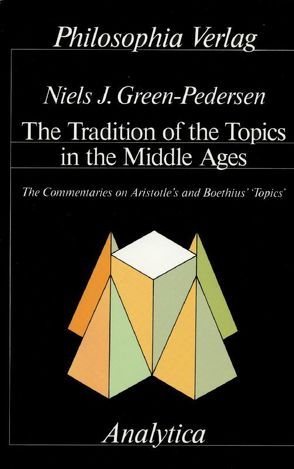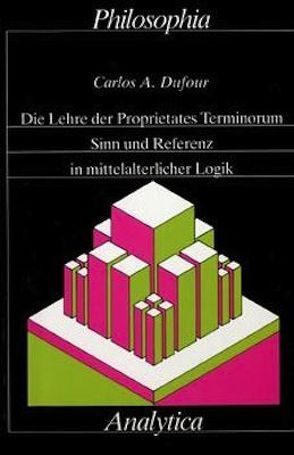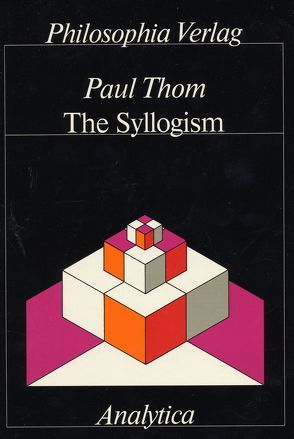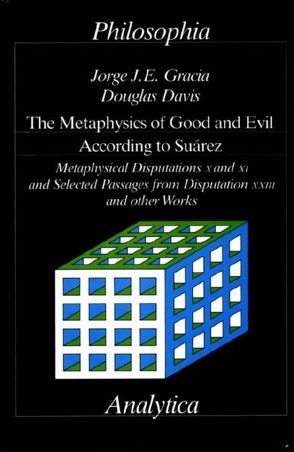
Between 1100 and 1500 the scholastic philosophers composed about 95 commentaries on the topics. These works concern Aristotle's Topics and Boethius' De Differentis Topicis which together with Boethius' In Ciceronis Topica exerted a significant influence upon the development of medieval logic.
Boethius and the medieval authors pay great attention to the question what a locus (topos) is. The function of the locus is described in connection with all the inference-forms which were known to the medieval logicians, viz. categorical and hypothetical syllogism, enthymemes, consequences, the modus ponens and the modus tollens. Boethius is the first author from whom we know the concept of the maxim.
Both in the commentaries and in the medieval manuals of logic, for example, of Abelard, Albert the Great, William of Sherwood, Ockham and Buridan, discussions of the topics connect with and contribute to several important logical and philosophical debates, such as those about dialectic, the theory of argumentation, axiomatics, formalism, universals, modal logic, and the theory of consequences, as well as the distinctions between object- and meta-language, inventio and iudicium, and first and second intentions. The discussions in this volume therefore mainly concern the philosophy of logic, which constitutes a uniquely thorough and original treatment of an important logical tradition.
The volume contains a catalogue of the commentaries which are known to exist and an appendix of hitherto unprinted texts.
Of interest to:
Philosophers, logicians, linguists, theologians, historians of these disciplines, researchers in medieval studies
Aktualisiert: 2022-09-13
> findR *

The present volume is a detailed and original study of the traditional, doctrine of terms. It can be regarded as an attempt to tackle the question: ,How would the scholastic philosophers have conceived and defended their doctrine bad they bad at their disposal the methods and techniques of contemporary logic and semantics? The answer provided, a systematic reconstruction of a number of important ideas in the history of logic, is both formally illuminating and entirely faithful to the relevant text.
The work begins with a general exposition of the doctrine of terns oriented around the basic semantic opposition between significatio and suppositio, analogues of the more familiar notions of sense and reference.
As a means of providing a precise and coherent reconstruction of the doctrine the author does not simply provide the predictable translation of the more amenable passages into the language of predicate logic. Rather he develops, on the basis of a careful systematization of the texts themselves, a formalization of his own, incorporating an ontology of substance and accident. The advantages of this approach are revealed in its capacity to provide both a simple reconstruction of syllogistic logic by means of a sequent-calculus and a natural extension of this logic to a theory of supposition.
Taking into consideration the categories of substance and accident in place of the more usual apparatus of set and element allows the author to develop a formalized theory of objects in which the two categories are allowed to yield composite objects of various sorts. This makes possible an illuminating application of the theory of concreta and abstracta (square of permutations) both to the theory of ampliatio and appellatio and to modal syllogistics.
The work concludes with a sketch of possible further developments and an attempted demonstration of the philosophical relevance of the theory in the light of a critical consideration of the relevant secondary literature.
Of interest to:
Logicians, philosophers, linguists and historians of these disciplines; medievalists
Aktualisiert: 2022-09-13
> findR *

The book deals with the formal analysis of Aristotles non-modal syllogistic; with the inter-relations between various syllogistic systems, their sub-systems and extensions; and with the fundamental question of the nature of the syllogism.
It aims to effect a synthesis of recent work (both logical and philological) on the non-modal sections of the Analytics, within the framework of a new formal system which combines features of Lukasiewicz's "axiomatic" approach with features of the ,natural deduction' of Corcoran and Smiley.
This system is located in relation to other system categorical syllogistic that have been developed from Aristotle's time to our own Also considered are systems with negative or singular terms, and systems which axiomatic structure to the rejected formulae. It is shown that Aristotle's syllogistic can be based on a system of singular syllogisms with the Aristotelian rules of ecthesis; and a new explanation is ventured for Aristotle's failure to complete a logic of singular terms. A minimal "auxiliary theory" is identified for those Systems which base syllogistic on propositional logic.
The question of the nature of the syllogism is approached first syntactically: the traditional "rules of the syllogism" are generalised and applied to the elucidation of Aristotle's syntactic metatheory in Prior Analytica Book B. (A side-result here is the formulation of a system of prosleptic syllogisms within which the results of the Kneales and Lejewski are derivable.) A property first defined by Smiley is then used to interpret some semantic metatheorems formulated by Aristotle. Finally, this semantic account of the syllogism is grounded on a theory of fallacies which has important links, via the notion of petitio principii, with epistemic logic. The resulting account of the syllogism is thus to some extent epistemological, but in no way psychologistic.
Of interest to:
Logicians, mathematicians, philosophers, historians of these disciplines, scholars in classical and medieval studies
Aktualisiert: 2022-09-13
> findR *

This volume contains the first translation into English of the two metaphysical disputations that Francisco Suárez (1548-1617) devoted to good and evil, Disputations X and XI of the 54 Disputationes Metaphysicae (1596). It also contains relevant passages on those topics selected from Disputation XXIII and other works in an appendix.
The translation is preceded by a substantial introduction which presents an interpretation of Suárez's metaphysical view of good and evil and locates it within a philosophical and historical framework.
The notes to the translation identify the textual sources to which Suárez refers and clarify the occasional problems found in die text. The Glossary aims to clarify Suarez's technical terminology and to identify die common understanding of terms by scholastics, pointing out, when possible, their source in Aristotle or his Latin commentators.
An English-Latin index provides the Latin equivalents of English terms used in the text and the bibliography lists the works cited in the volume as well as other pertinent sources. The volume contains also a detailed subject index.
,The translation is readable, with copious annotations to identify Suárez's references and, where necessary, to provide further explanatory material. A glossary offering often extended notes on over two hundred Scholastic technical terms should make reading The Metaphysics of Good and Evil According to Suárez a fruitful exercise for those not previously well versed in the terminology of the Schoolmen. The volume also contains indices of the Latin equivalents of key terms in the English translation, of the authors cited by Suárez and by the editors, and a subject index. A comprehensive bibliography concludes this exemplary edition."
(Irish Philosophical Journal, 1990)
Aktualisiert: 2022-09-13
> findR *
MEHR ANZEIGEN
Bücher zum Thema Medievalistik
Sie suchen ein Buch über Medievalistik? Bei Buch findr finden Sie eine große Auswahl Bücher zum
Thema Medievalistik. Entdecken Sie neue Bücher oder Klassiker für Sie selbst oder zum Verschenken. Buch findr
hat zahlreiche Bücher zum Thema Medievalistik im Sortiment. Nehmen Sie sich Zeit zum Stöbern und finden Sie das
passende Buch für Ihr Lesevergnügen. Stöbern Sie durch unser Angebot und finden Sie aus unserer großen Auswahl das
Buch, das Ihnen zusagt. Bei Buch findr finden Sie Romane, Ratgeber, wissenschaftliche und populärwissenschaftliche
Bücher uvm. Bestellen Sie Ihr Buch zum Thema Medievalistik einfach online und lassen Sie es sich bequem nach
Hause schicken. Wir wünschen Ihnen schöne und entspannte Lesemomente mit Ihrem Buch.
Medievalistik - Große Auswahl Bücher bei Buch findr
Bei uns finden Sie Bücher beliebter Autoren, Neuerscheinungen, Bestseller genauso wie alte Schätze. Bücher zum
Thema Medievalistik, die Ihre Fantasie anregen und Bücher, die Sie weiterbilden und Ihnen wissenschaftliche
Fakten vermitteln. Ganz nach Ihrem Geschmack ist das passende Buch für Sie dabei. Finden Sie eine große Auswahl
Bücher verschiedenster Genres, Verlage, Autoren bei Buchfindr:
Sie haben viele Möglichkeiten bei Buch findr die passenden Bücher für Ihr Lesevergnügen zu entdecken. Nutzen Sie
unsere Suchfunktionen, um zu stöbern und für Sie interessante Bücher in den unterschiedlichen Genres und Kategorien
zu finden. Unter Medievalistik und weitere Themen und Kategorien finden Sie schnell und einfach eine Auflistung
thematisch passender Bücher. Probieren Sie es aus, legen Sie jetzt los! Ihrem Lesevergnügen steht nichts im Wege.
Nutzen Sie die Vorteile Ihre Bücher online zu kaufen und bekommen Sie die bestellten Bücher schnell und bequem
zugestellt. Nehmen Sie sich die Zeit, online die Bücher Ihrer Wahl anzulesen, Buchempfehlungen und Rezensionen zu
studieren, Informationen zu Autoren zu lesen. Viel Spaß beim Lesen wünscht Ihnen das Team von Buchfindr.



